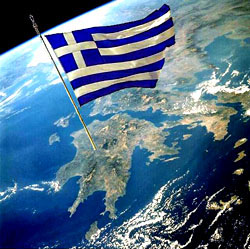 This week brought yet more talks on Greek debt and yet more denying of reality. The Greeks are mad, the Germans are tired, and everyone knows something has to give. The Guardian summarizes:
This week brought yet more talks on Greek debt and yet more denying of reality. The Greeks are mad, the Germans are tired, and everyone knows something has to give. The Guardian summarizes:
Why the talks failed
While finance ministers were arguing last night, Reuters got their hands on a document prepared for the meeting. It showed that Greece’s debts can only be cut to a sustainable level if eurozone countries accept losses on their loans to Athens, provide additional financing or force private creditors into selling Greek debt at a discount.
….It said that either member states accept “capital losses or budgetary implications”, or push back the target date for Greece’s debts to fall to 120% of GDP by two years, to 2022. Eurozone countries are not, yet, prepared to accept the first option, while the second option is unacceptable to the IMF. Thus deadlock.
That’s about the state of things. Greece’s debt is flatly unsustainable, and the technocrats know it—when they’re writing for private consumption, anyway. At some point, eurozone leaders are either going to essentially forgive all of Greece’s debt or else Greece will leave the euro.
Writing off Greece’s debt is actually doable because Greece is a fairly small country. But everyone is afraid that if they do it, then Spain, Portugal, and Ireland will all want the same treatment. And that’s not doable. Thus the impasse.
For now, anyway. In a few days everyone will figure out yet another can-kicking exercise, and the immediate crisis will be averted for another year or so. Unless some other country blows up in the meantime, of course.


















